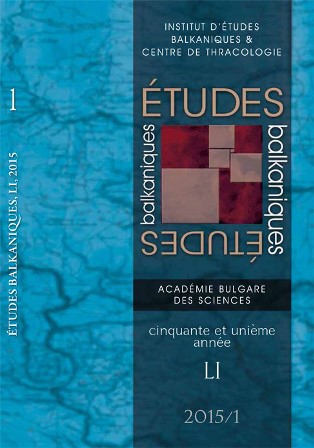ORTHODOX ECUMENICITY AND THE BULGARIAN SCHISM
ORTHODOX ECUMENICITY AND THE BULGARIAN SCHISM
Author(s): Dimitrios StamatopoulosSubject(s): History
Published by: Институт за балканистика с Център по тракология - Българска академия на науките
Keywords: Bulgarian Schism; Ecumenical Patriarchate; Bulgarian Exarchate; Balkan Nationalism
Summary/Abstract: The article will dealt with three different ways to interpret the announcement of the Schism against the Bulgarian Exarchate on behalf of the Ecumenical Patriarchate in 1872: a “modern”, a “pre-modern”, a “post-modern”. The latter’s supporters proposed to understand the ecumenical ideology of the Patriarchate as “crypto-nationalist” gesture, completely justified by the ultimate goals of the Greek irredentism of the late 19th century, overlooking the identification of the Patriarchate’s elite with the Ottoman state as well as the internal conflicts for hegemony between different interest groups which many times had been connected with the other side (radicals and moderates of the Bulgarian community) · the “post-modern” model tried to replace directly the “pre-modern” approach which interpreted the Schism as an expression of the very essence of the ecumenism of the Patriarchate reminding the simultaneous condemnation of the “ethnophyletism”, that means of the ideology of nationalism, which was threatening the unity of the Christian Orthodox ecumene. However both of the above interpretations suffer by internal logical misunderstandings: if the latter takes as given the ecumenical ideology of the Patriarchate ignoring the “alienating” character of the nationalism which subjugated and used instrumentalized versions of the old religions, the former read the incorporation of the rival nationalism as a liberating action of challenging the argumentation of his own nationalism! My argumentation defends a “modern” approach where the nationalist conflicts and the hegemony competition should be de-codified through the analysis of the power relations between different interest and status groups, not only in the Patriarchate but also in the bosom of the Bulgarian Exarchate.
Journal: Études balkaniques
- Issue Year: 2015
- Issue No: 1
- Page Range: 70-86
- Page Count: 17
- Content File-PDF

